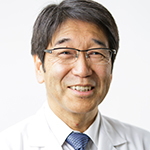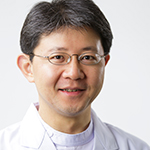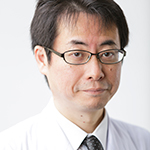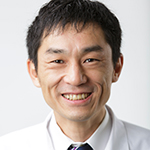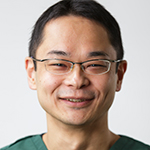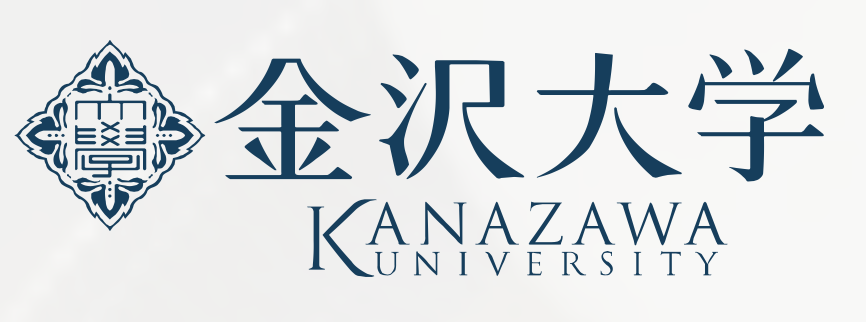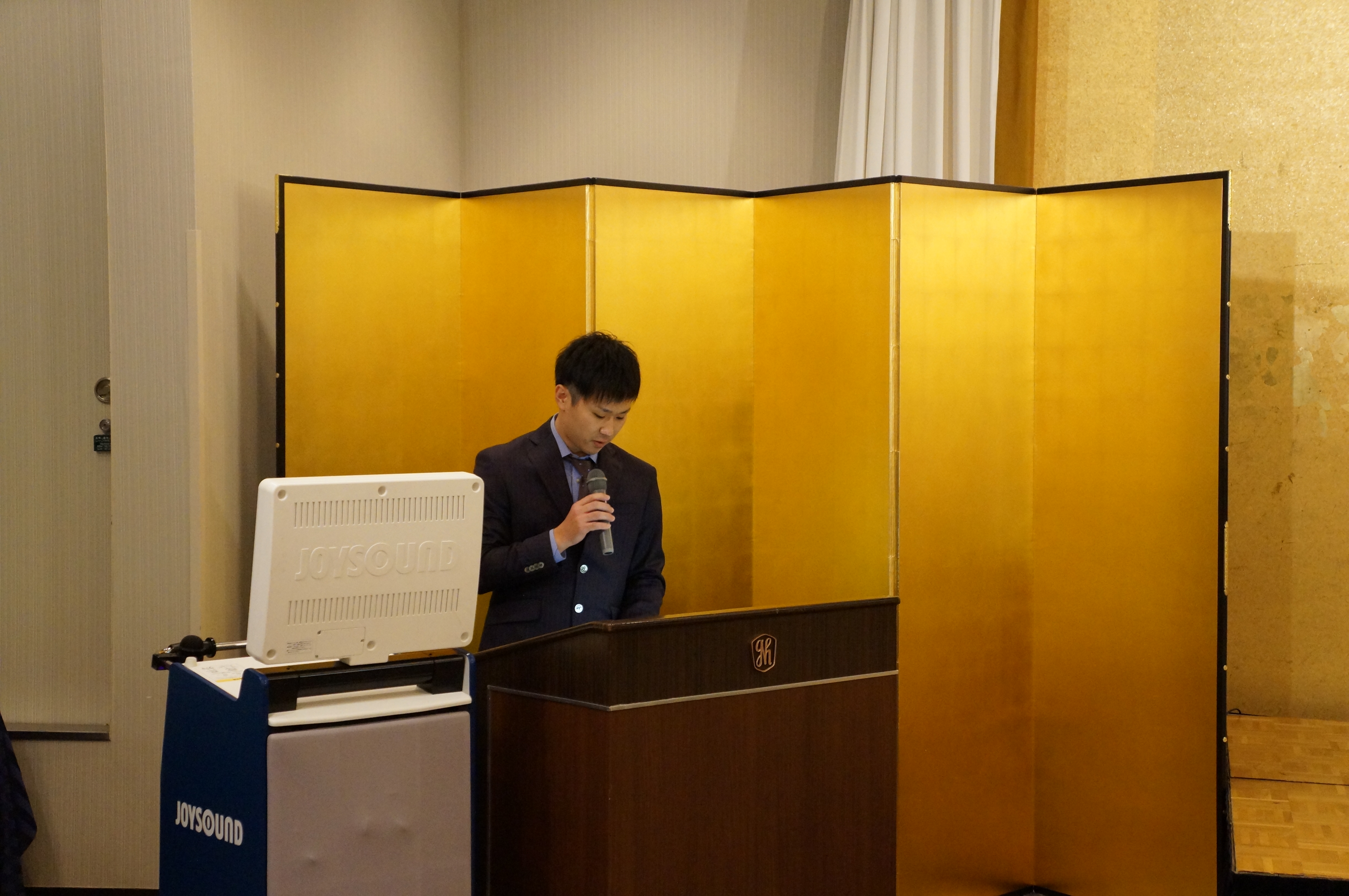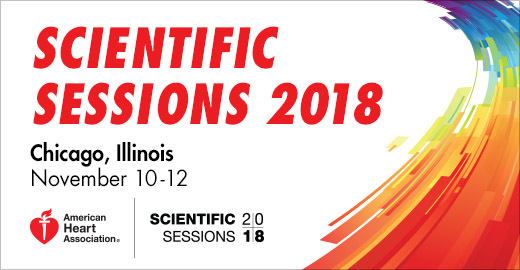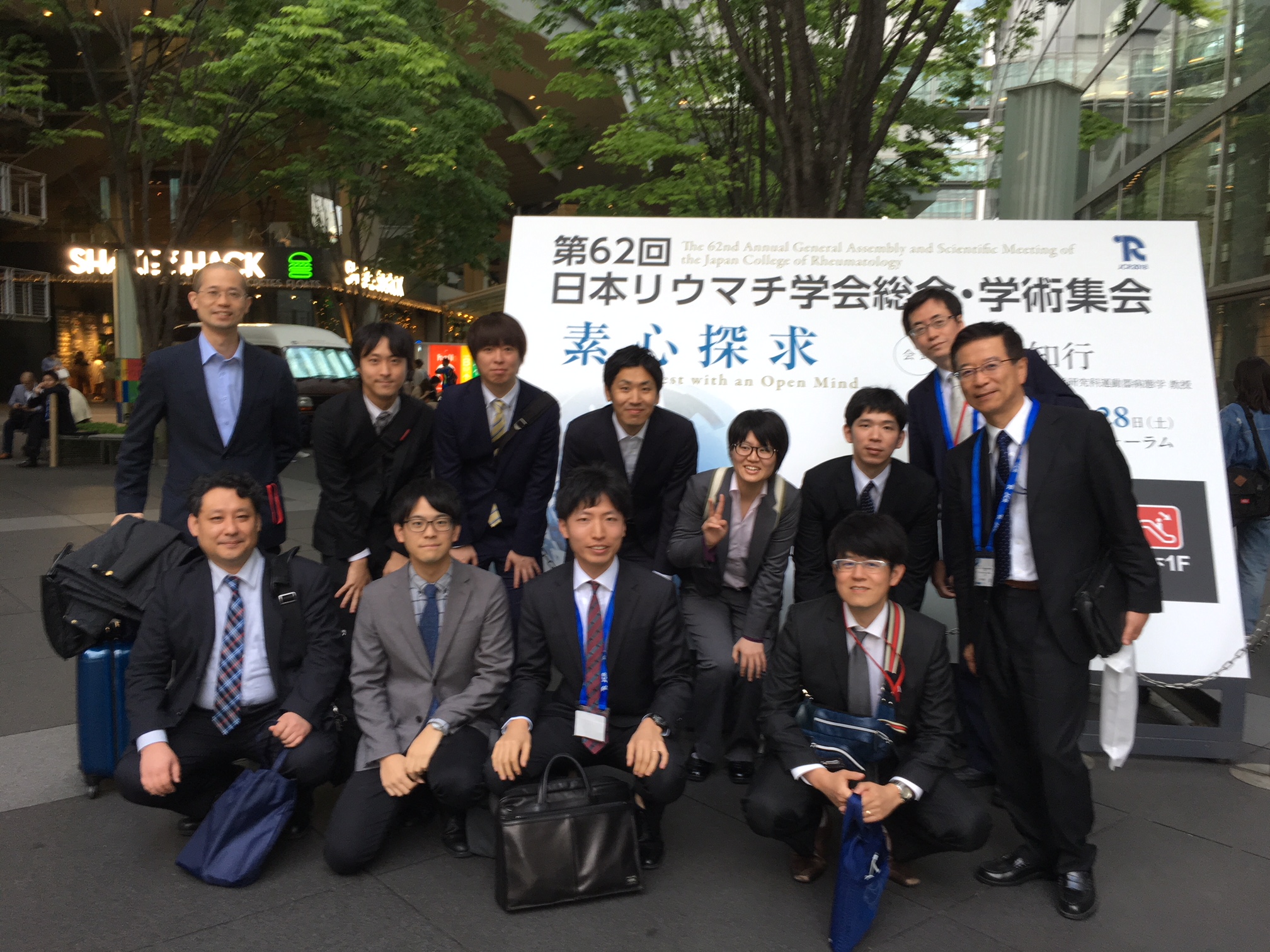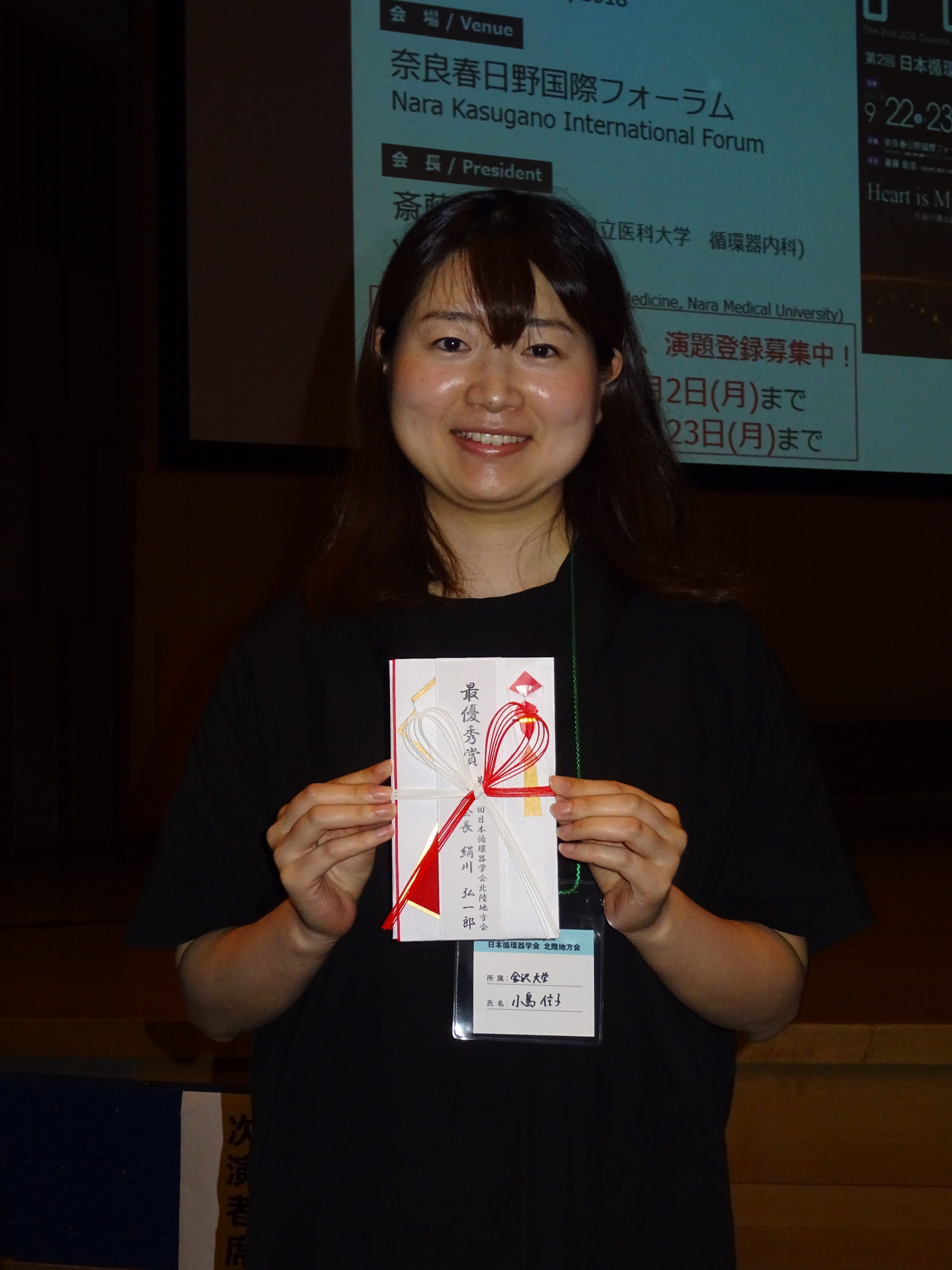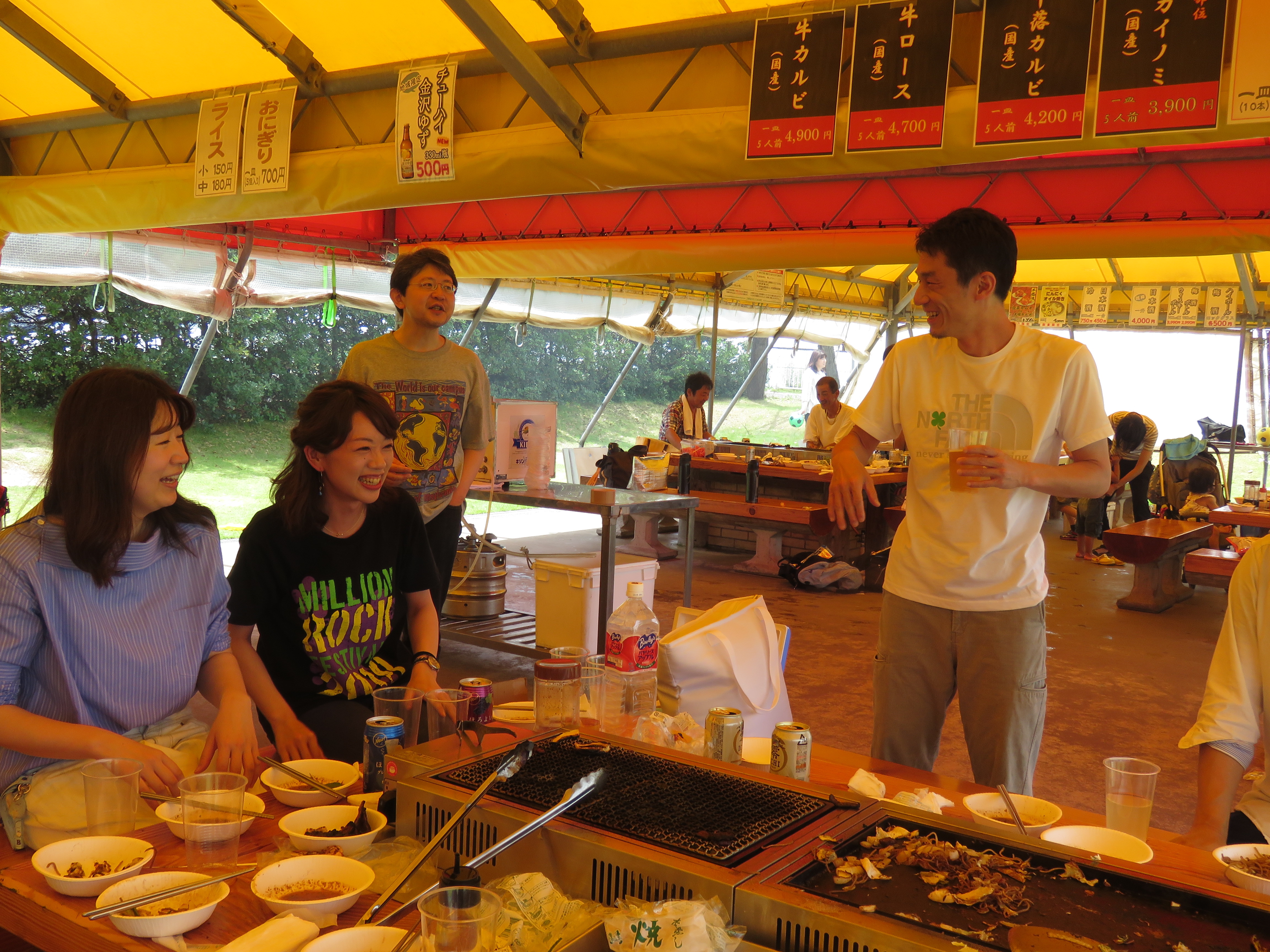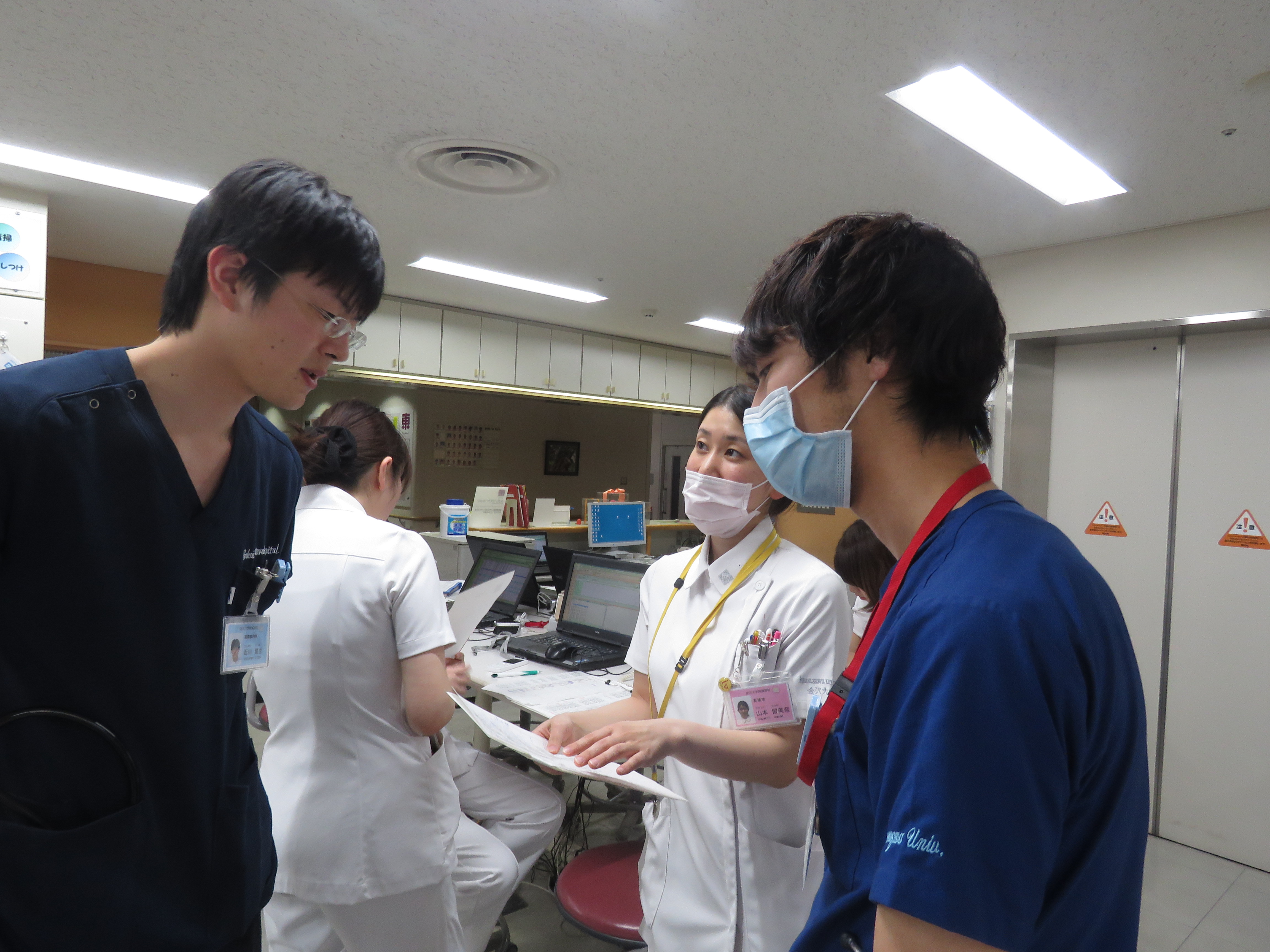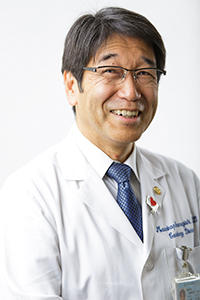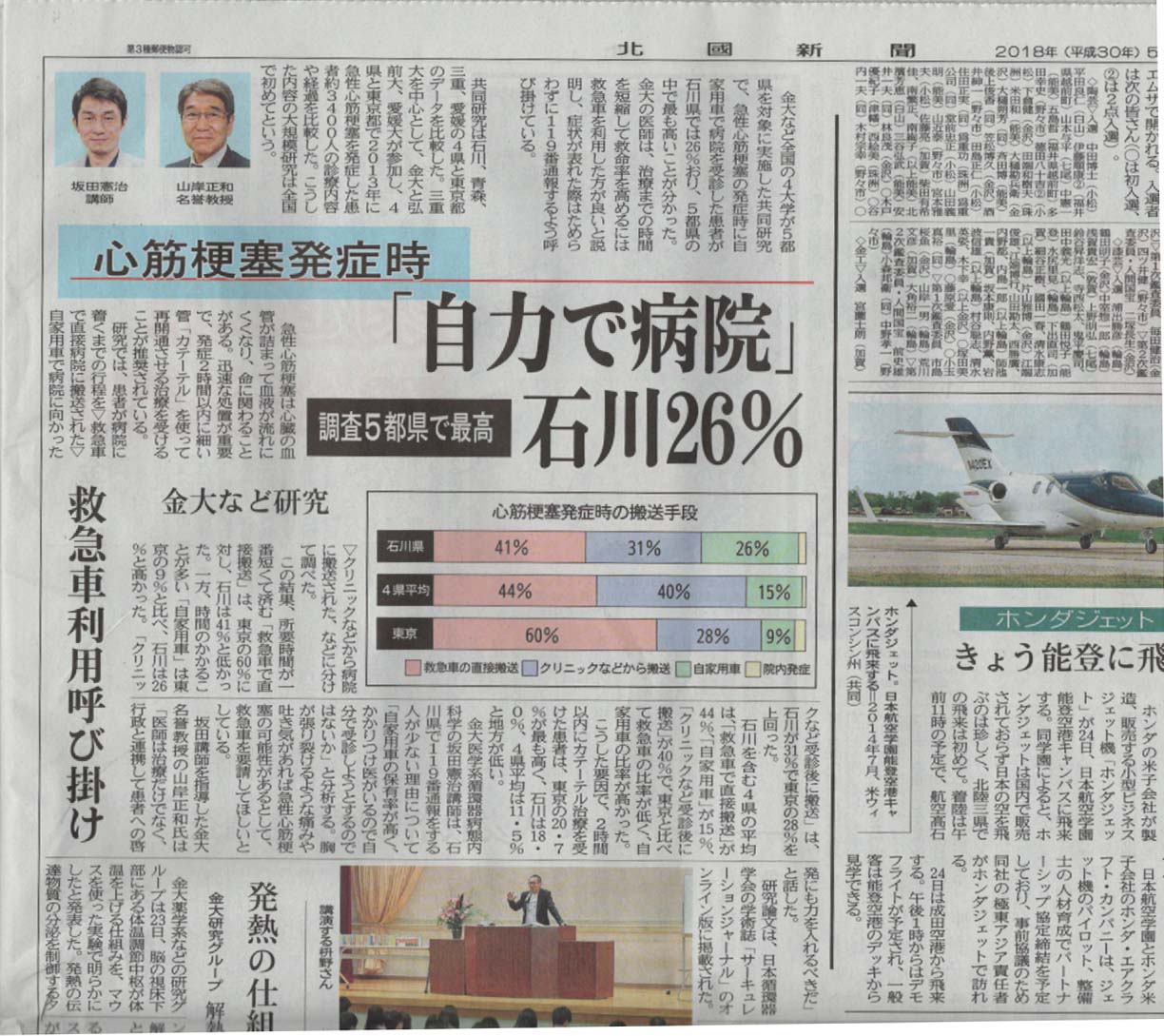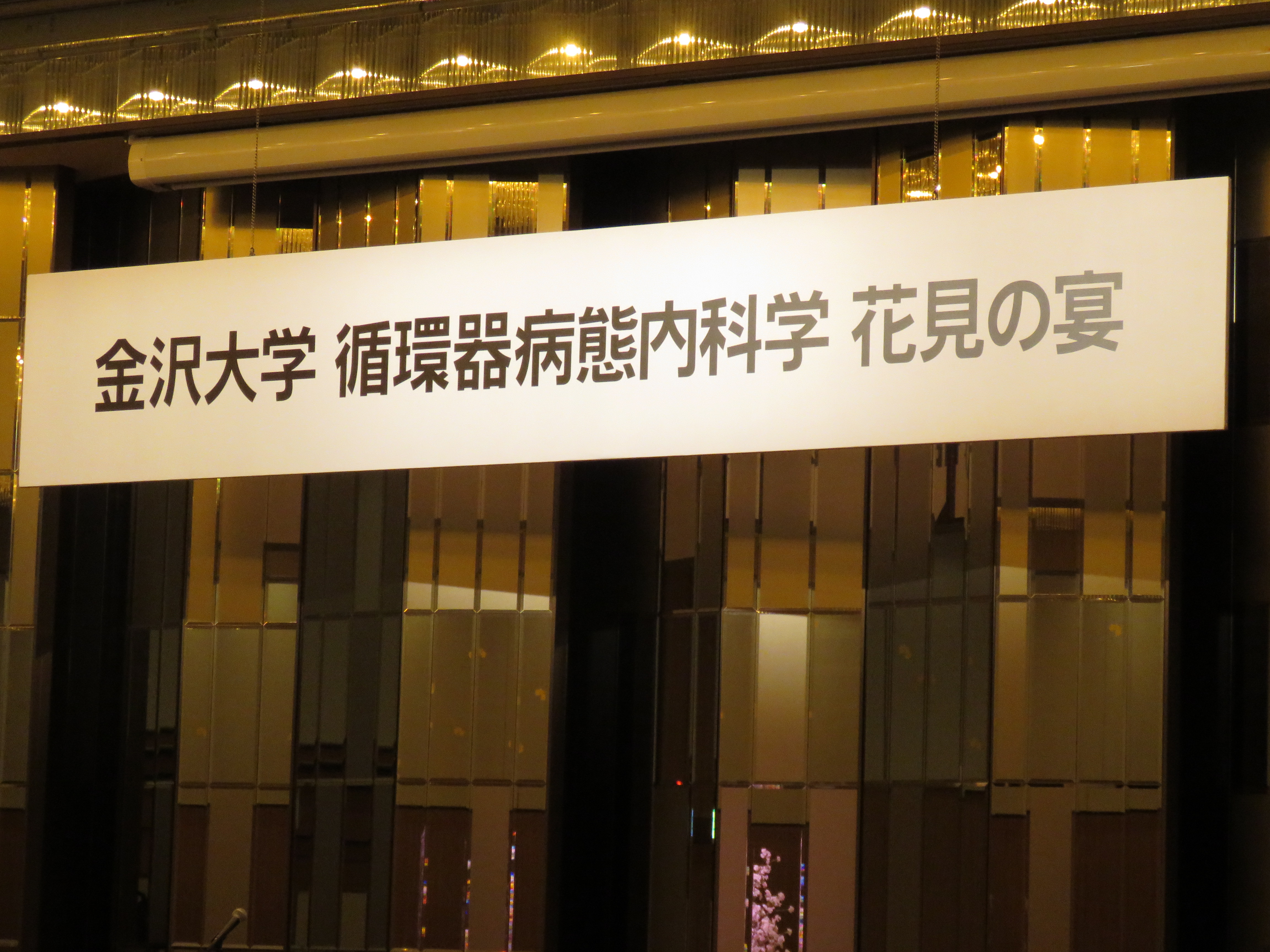
Professor Masakazu Yamagishi, MD, PhD
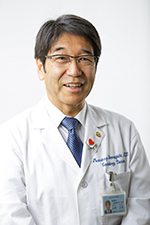
Thank you very much for visiting to our Web site. At the end of March, there are some cherry blossoms partially in bloom, although there still remains snow in the mountainside of Kanazawa area. We can see snowed Mt. Hakusan and Mt. Iozen. Last month, there was a terrible news story about traffic accident due to sudden death of a car driver who suffered from acute aortic dissection with cardiac tamponade. As we have already reported, some cases with aortic dissections present only neurological symptoms instead of chest symptoms (Yoshimuta T, et al. 2013). We have also demonstrated high frequency of aortic dissection in cases with death on arrival by postmortem computed tomography (Tanaka Y, et al. 2016). To prevent the development of aortic dissection, clinicians should control blood pressure levels as low as possible, as suggested by the recent study outside Japan. Last week, 80th Annual Scientific Session of the Japanese Circulation Society was well attended by a lot of participants in Sendai, Japan to discuss about the advances in cardiovascular medicine.
Our History
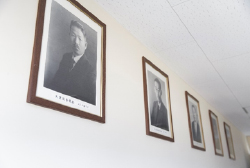
The Department of Cardiovascular and Internal Medicine (former named “the Second Department of Internal Medicine”) was founded in 1924 by Dr. Shungo Osato. Dr. Osato, from Tohoku University, was appointed to the first professor of the department and contributed greatly to the establishment of cardiology in Hokuriku region. The Department was succeeded by Dr. Mutsuo Heki (tenure from 1944 to 1957) followed by Dr. Genko Murakami (tenure from 1958 to 1972), Dr. Ryoyu Takeda (tenure from 1972 to 1994), and Dr. Hiroshi Mabuchi (tenure from 1994 to 2005). After the reorganization of the graduate school of medicine in Kanazawa University in 2001, Dr. Masakazu Yamagishi, from the National Cerebral and Cardiovascular Center, was appointed to the 6th professor of the Department in 2006. Professor Yamagishi qualified MD at Kanazawa University in 1978, and PhD in 1987 in Osaka University. Today, Professor Yamagishi leads the Department, performing the main role of education, clinical practice, and research in cardiology, metabolic and endocrinology, diabetes mellitus, rheumatology, nephrology, and gastroenterology. Our educational policy “Teaching is learning twice over” has never been changed for more than 90 years since the foundation of the Department.
Department Members
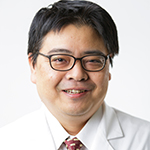
Akihiro Inazu, MD, PhD
– Professor of Department of Clinical Laboratory
Science
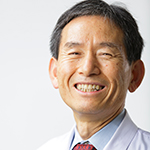
Yoshiyu Takeda, MD, PhD
– Specially Appointed Professor of Innovative
Clinical Research Center
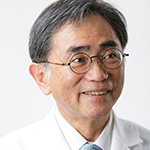
Takeshi Kobayashi, MD
– Specially Appointed Professor of Department of
Advanced Research in Community Medicine
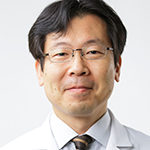
Noboru Fujino, MD, PhD
– Associate Professor of Institute of Medical,
Pharmaceutical and Health Sciences
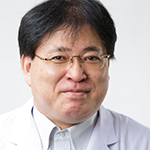
Takashi Yoneda, MD, PhD
– Specially Appointed Associate Professor of
Pharmaceutical, and Health Science Medical
Doctorate Program
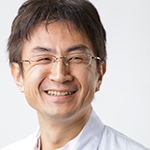
Takeshi Sawada, MD, PhD
– Specially Appointed Associate Professor of
Department of Advanced Research in Community
Medicine
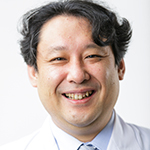
Kazunori Yamada, MD, PhD
– Specially Appointed Associate Professor of
Department of Advanced Research in Community
Medicine
Our Activities

We are devoting ourselves to clinical practice, research and education of internal medicine. Our Department includes 4 divisions; Cardiology, Metabolism and Endocrinology, Rheumatology and Nephology, and Gatroenterology. Department members are involved in educational contributions at all levels which include medical student teaching, clinical clerkship program contributions, clinical teaching activities, and postgraduate teaching.
Division of Cardiology
At Kanazawa University Hospital, patients and their family will find a full range of expert care from prevention, diagnosis and treatment to rehabilitation and recovery of cardiovascular diseases. Specialized outpatient clinics include lipid metabolism, hypertension, diabetes, coronary artery disease, heart failure, and arrhythmias. For patients who need emergent care, we provide rapid treatments in our emergency room. Based on these effective systems, our department has been recognized as “last stand in Hokuriku region” in cardiology.
> Detailed information (Japanese)
Division of Metabolism and Endocrinology, Diabetes
Because endocrine and metabolic disorders play an important role in the onset and progression of cardiovascular disease, nationwide efforts in Japan have focused on the prevention and treatment of hypertension and diabetes. Our laboratory plays a central role in the clinical and basic studies of endocrine hypertension, particularly for primary aldosteronism. Our achievements in research of the renin-angiotensin-aldosterone system (RAAS) provided a basis for use of angiotensin II blockers and aldosterone antagonists in patients with cardiovascular and renal diseases. Also, we are currently conducting clinical trials of diabetic nephropathy and metabolic syndrome, which will contribute to developing innovative drug treatments.
> Detailed information (Japanese)
Division of Rheumatology, Nephrology
Our clinical research mainly focuses on Sjogren’s syndrome and IgG4 related diseases. Our department is one of the biggest centers of these diseases. We have investigated difference of clinical findings of Sjogren’s syndrome according to their auto-antibodies, and reported distinct characteristics of anti-centromere antibody positive Sjogren’s syndrome. We established diagnostic criteria of IgG4 related kidney disease and released the criteria on public journal of Japanese Society of Nephrology. Furthermore, we also vigorously work on basic research targeting auto-antibody, polycystic kidney diseases, and rheumatoid arthritis.
> Detailed information (Japanese)
Division of Gastroenterology
We have performed genetic analyses of various diseases, such as Wilson disease, Cowden syndrome, and hemochromatosis. Currently, genetic and epigenetic analyses of colorectal neoplastic lesions are being performed in cooperation with Sapporo Medical University Nagoya City University, and National Cancer Center. We are aiming to carry out genetic research in more diverse gastrointestinal diseases, which will contribute to dissecting unknown molecular mechanisms.
Featured publications

Hayashi K, Konno T, Tada H, Tani S, Liu L, Fujino N, Nohara A, Hodatsu A, Tsuda T, Tanaka Y, Kawashiri MA, Ino H, Makita N, Yamagishi M. Functional Characterization of Rare Variants Implicated in Susceptibility to Lone Atrial Fibrillation. Circ Arrhythm Electrophysiol. 2015 Oct;8(5):1095-104. ![]()
Hayashi K, Konno T, Fujino N, Itoh H, Fujii Y, Imi-Hashida Y, Tada H, Tsuda T, Tanaka Y, Saito T, Ino H, Kawashiri MA, Ohta K, Horie M, Yamagishi M. Impact of Updated Diagnostic Criteria for Long QT Syndrome on Clinical Detection of Diseased Patients: Results From a Study of Patients Carrying Gene Mutations JACCCEP. 2016 in press. ![]()
Konno T, Nagata Y, Teramoto R, Fujino N, Nomura A, Tada H, Sakata K, Furusho H, Takamura M, Nakamura H, Kawashiri MA, Yamagishi M, Hayashi K. Usefulness of Electrocardiographic Voltage to Determine Myocardial Fibrosis in Hypertrophic Cardiomyopathy. Am J Cardiol. 2016 Feb 1;117(3):443-9. ![]()
Tada H, Melander O, Louie JZ, Catanese JJ, Rowland CM, Devlin JJ, Kathiresan S, Shiffman D. Risk prediction by genetic risk scores for coronary heart disease is independent of self-reported family history. Eur Heart J. 2016 Feb 7;37(6):561-7. ![]()
Nomura A, Tada H, Teramoto R, Konno T, Hodatsu A, Won HH, Kathiresan S, Ino H, Fujino N, Yamagishi M, Hayashi K. Whole exome sequencing combined with integrated variant annotation prediction identifies a causative myosin essential light chain variant in hypertrophic cardiomyopathy. J Cardiol. 2016 Feb;67(2):133-9. ![]()
Funada A, Goto Y, Maeda T, Teramoto R, Hayashi K, Yamagishi M. Improved Survival With Favorable Neurological Outcome in Elderly Individuals With Out-of-Hospital Cardiac Arrest in Japan - A Nationwide Observational Cohort Study. Circ J. 2016 Apr 25;80(5):1153-62. ![]()
Yoneda T, Karashima S, Kometani M, Usukura M, Demura M, Sanada J, Minami T, Koda W, Gabata T, Matsui O, Idegami K, Takamura Y, Tamiya E, Oe M, Nakai M, Mori S, Terayama N, Matsuda Y, Kamemura K, Fujii S, Seta T, Sawamura T, Okuda R, Takeda Y, Hayashi K, Yamagishi M, Takeda Y. Impact of New Quick Gold Nanoparticle-Based 2012020711042634Cortisol Assay During Adrenal Vein Sampling for Primary Aldosteronism. J Clin Endocrinol Metab. 2016 Jun;101(6):2554-61. ![]()
Hara S, Kawano M, Mizushima I, Harada K, Takata T, Saeki T, Ubara Y, Sato Y, Nagata M. Distribution and components of interstitial inflammation and fibrosis in IgG4-related kidney disease: analysis of autopsy specimens. Hum Pathol. 2016 Sep;55:164-73. ![]()
Sawada T, Yamamoto E, Yamano HO, Nojima M, Harada T, Maruyama R, Ashida M, Aoki H, Matsushita HO, Yoshikawa K, Harada E, Tanaka Y, Wakita S, Niinuma T, Kai M, Eizuka M, Sugai T, Suzuki H. Assessment of epigenetic alterations in early colorectal lesions containing BRAF mutations. Oncotarget. 2016 Apr 27. ![]()
(See also this page for details.)
To Students and Trainees
Welcome! The Department of Cardiovascular and Internal Medicine offers a variety of training opportunities for residents. Our educational programs are integrated into the core missions of internal medicine. Residents acquire patient care experience by rotating through our divisions (Cardiology, Endocrinology, Rheumatology, Nephrology, and Gastroenterology) and by acting as consultants on subspecialty services. Residents also receive clinical training through bedside teaching, small group discussions, and daily conferences. Furthermore, our programs provide academic experiences which include preparing materials for clinical and research presentations. Links to each residency training program are found in the box on the left side of this webpage (Japanese).
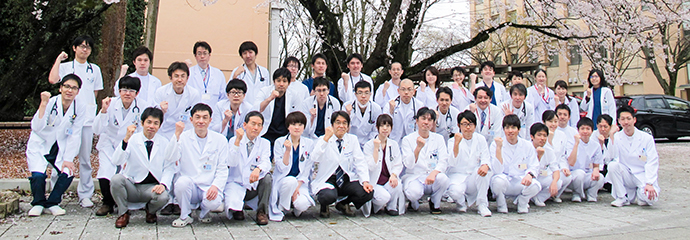
Contact Information
Masakazu Yamagishi, MD, PhD, FACC, FJCC
Department of Cardiovascular and Internal Medicine
Kanazawa University Graduate School of Medicine
13-1, Takara-machi, Kanazawa, Ishikawa, 920-8641
E-mail myamagi@med.kanazawa-u.ac.jp
Phone +81-76-265-2254


